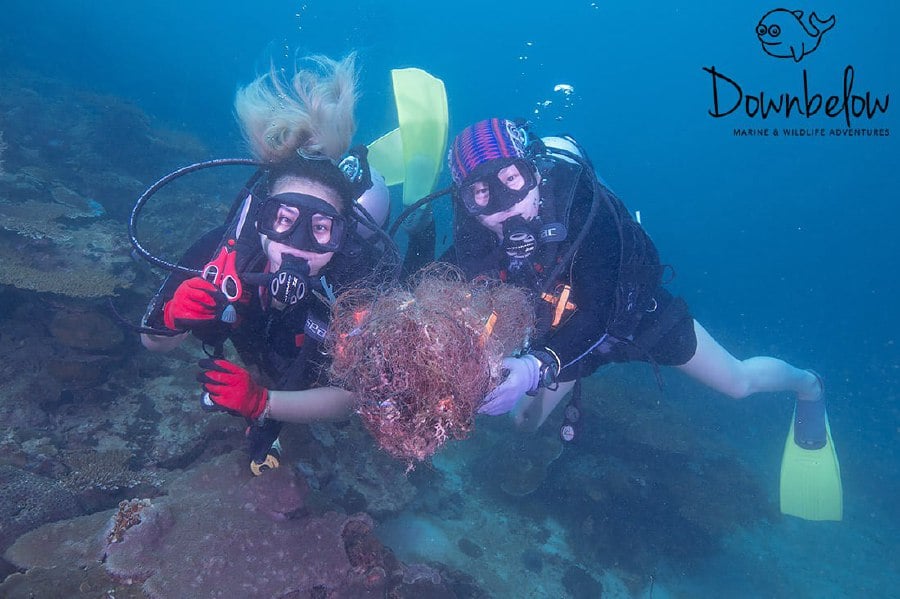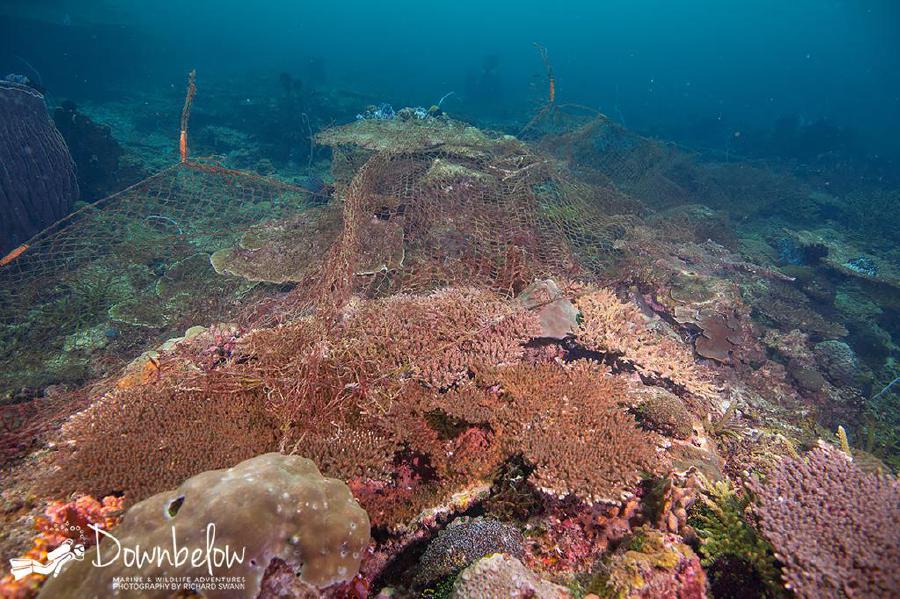By Olivia Miwil - December 15, 2020 @ 11:45am
KOTA KINABALU: Sabah is reopening its scuba diving sector after it was suspended due to the Covid-19 pandemic, and Chloe Tiffany Lee is among those who have joined a conservation dive for ghost net removals.
After she became a certified diver during a pageant 10 years ago, promoting awareness on marine conservation has become part of her life.
While the underwater view at Tunku Abdul Rahman Park here is breath-taking, she was shocked to see the size of fishing nets which were discarded at the reef last week.
Ghost nets trapped on the reef and disrupting the marine life off Tunku Abdul Rahman Park. - Pic courtesy of Richard Swann"Removing the net was difficult, as it was tangled all over the coral reef. I had to divide the net so we could roll it properly without letting it get tangled again.
"The current on that day was not ideal. As I was trying to untangle the net, I was pushed back and forth, and my legs and hands were scratched by the corals," she said.
Dive Downbelow managing director Richard Swann said the net, which is about 300 metres long, not only destroys fish but also the delicate reef which is the essence of the marine ecosystem.
He added that nets discarded by fishermen onto the seabed are a long-standing issue and very disturbing for divers and other marine enthusiasts.
Previously, the dive company, which also offers professional diving courses, had been engaging students in doing conservation work.
However, with the Conditional Movement Control Order (CMCO) and Covid-19 pandemic leading to fewer divers and students, Swann said he had to organise conservation dives every Wednesday to get funds and manpower to do the ghost net removals.
"During the CMCO, there were no people going diving, thus there were no reports made to authorities (on sightings of ghost nets or illegal fishing).
"But when we did our first dive after the lockdown, I feared there would be more nets (left under the sea).
"However, people should not point fingers, as Sabah Parks also has limited resources to patrol, especially outside the park," he said.
As a course director, Swann believes that education would be the answer to making fishermen change their ways of fishing.
"Enforcement and arresting people are merely a short term solution for this problem.
"Blaming the authorities would never change the behaviour of fishermen, but through education, their children might be able to influence them."


Comments
Post a Comment